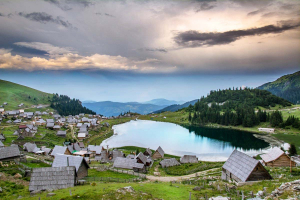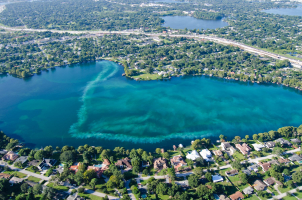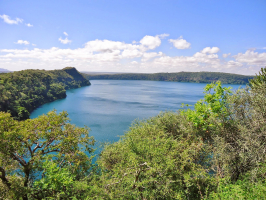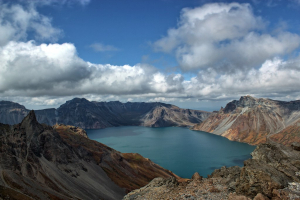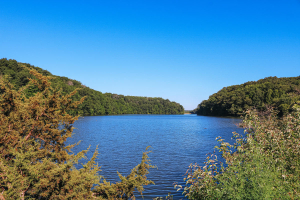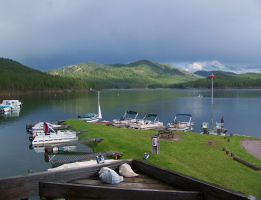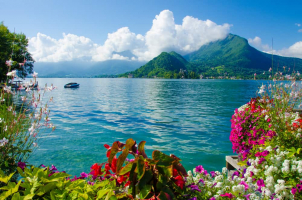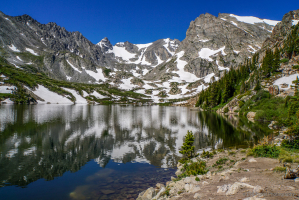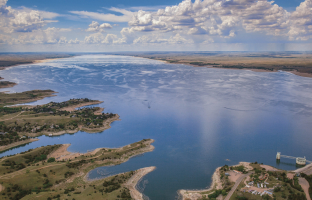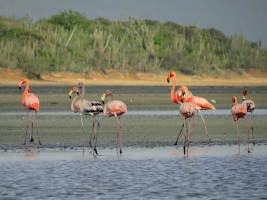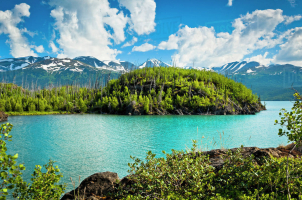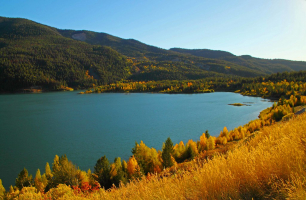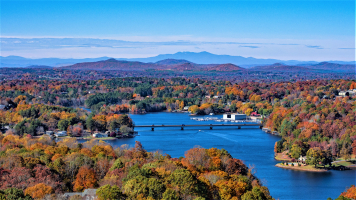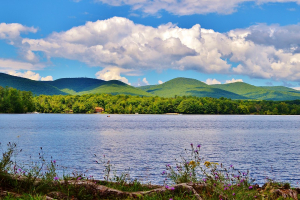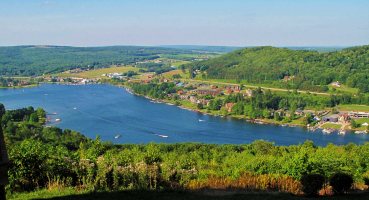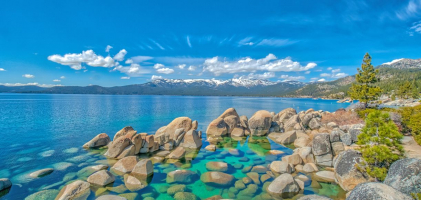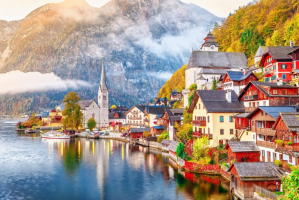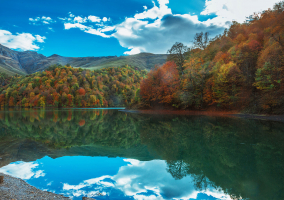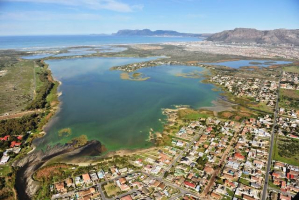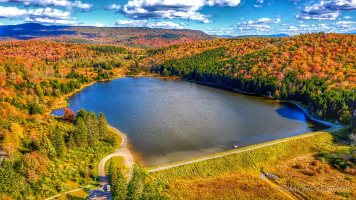Top 8 Best Lakes To Visit in Hungary
The lakes are the ideal summer destination for those who want a place to relax and cool off without descending to cramped beach destinations. In the vast ... read more...region of Hungary, there is no shortage of beautiful lakes. Let's join Toplist to discover the best lakes to visit in Hungary!
-
Freshwater Lake Balaton is located in Hungary's Transdanubian area. It is the largest lake in Central Europe, and a popular tourist site in the area. The lake receives the most water from the Zala River, and the only outflow is through the canalized Sió.
The flat southern shore is noted for its vacation cities, while the hilly northern shore is known for both its historic character and as a significant wine region. It is without a doubt the largest lake in Central Europe, covering an area of more than 590 square kilometers, but it is also astonishingly shallow, only reaching a depth of about 3 meters. It is one of the most visited tourist destinations in Hungary because it offers a combination of beautiful beaches and positive attitudes. In these tranquil seas, one can sail in addition to swimming! A number of resort communities have sprung up around Lake Balaton in Hungary, some of the most well-known of which being Keszthely, Siófok, and Balatonfüred. If it works out for you, consider rearranging your schedule to coincide with Balaton Sound, a bizarre music festival held in the Zamárdi resort on the lake's southern bank.
If you want to save money, you can either take the short 1.5-hour drive from Budapest to Lake Balaton or take the train.
Location: Transdanubian region of Hungary
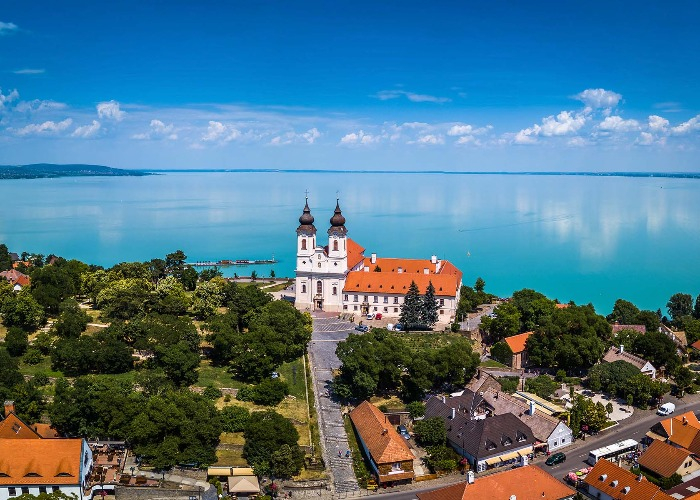
Photo: oveexploring.com 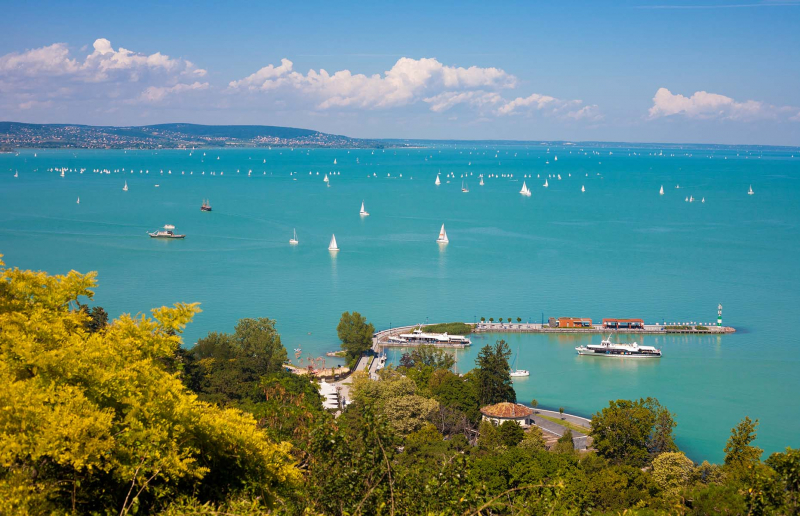
Photo: oveexploring.com -
Lake Hévíz is situated in Hévíz, Hungary, 8 kilometers from Keszthely and close to the western edge of Lake Balaton. This lake is one of the best lakes to visit in Hungary.
The only larger thermal lake that can be swum in is Frying Pan Lake in New Zealand, which is too hot to do so. Every 72 hours, the lake's water is totally replenished due to the lake's rapid water flow. Its depth ranges from 2 meters at its shallowest point to 38 meters at its deepest, which is precisely where the hot thermal water emerges to the surface.
Due to its medicinal qualities, which have become incredibly well-known over the years, it attracts travelers from all over the world. During your visit to Hungary, you should surely visit Hévíz Spa, which is set around a lake. Here, you may unwind while the water's therapeutic qualities benefit your mind, body, and soul. Patients with rheumatic ailments and locomotor disorders, among others, are said to benefit from the waters. The region has a booming health tourism sector.
Location: Hévíz, Hungary
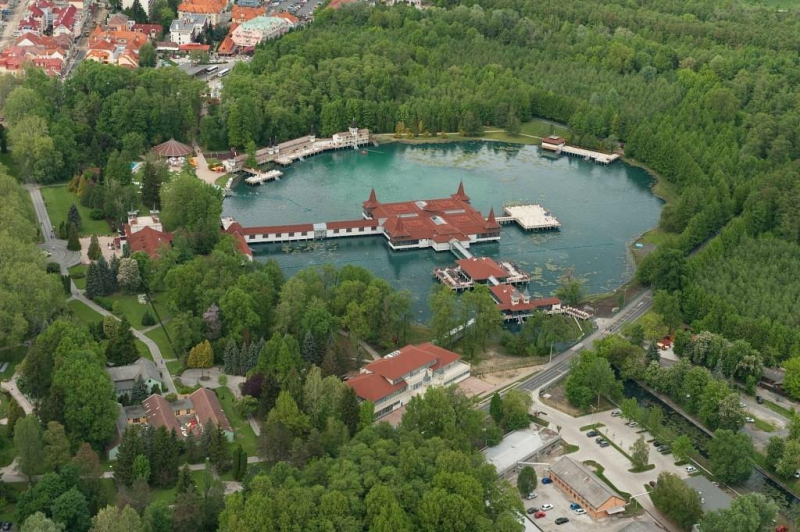
Photo: tripadvisor.co.vn 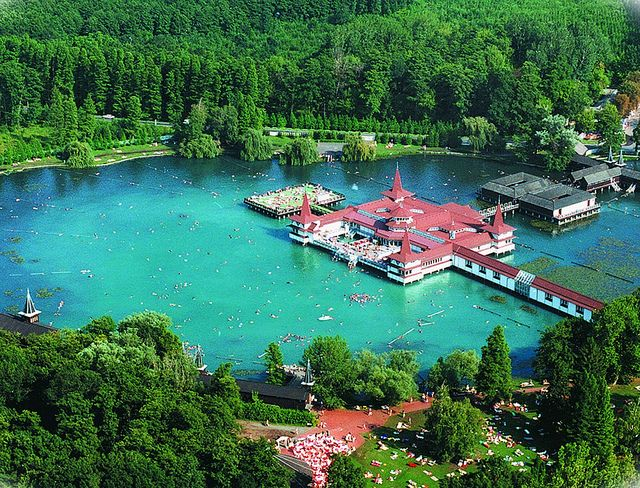
Photo: pinterest.com -
The largest endorheic lake in Central Europe, Lake Neusiedl, is located on the Austrian-Hungarian border. The lake has a surface area of 315 km2, of which 240 km2 are in Austria and 75 km2 are in Hungary. The drainage basin for the lake is approximately 1,120 km2. The lake is about 36 km long from north to south and 6 to 12 km wide from east to west. The lake is only 1.8 m deep on average, and its surface rises 115.45 m above the Adriatic Sea.
The majority of the lake is bordered by reeds, which are harvested in the winter as soon as the ice is thick enough and provides a habitat for wildlife (making the lake an important resting point for migratory birds). Human habitation in the area of Lake Neusiedl has been documented since the Neolithic era. Beginning in the 7th century BC, the region started to become heavily populated, originally with members of the Hallstatt civilization and remained so into the Roman era. Here, in 454 AD, Theodoric the Great, the foremost Ostrogoth king, was born. Two Roman villas and a third-century Mithras temple are open to visitors close to Fertrákos.
Location: Austria, Hungary
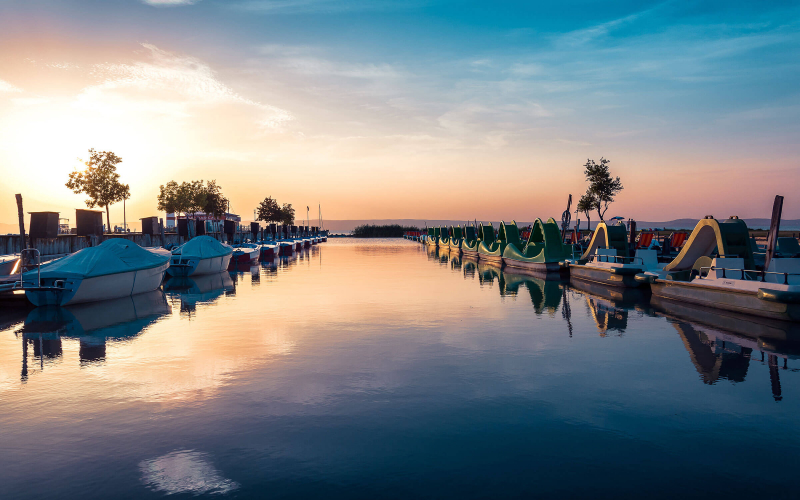
Photo: butterfield.com Video: https://www.youtube.com/watch?v=PXjf9lb0VBI -
The Oroszlány Thermal Power Company flooded a low-lying meadow near the plant in 1961 to create Lake Bokodi, a man-made lake in the village of Bokod, some 80 kilometers west of Budapest, Hungary. To run its boilers, the power plant uses cold water from the lake, and warm water is then discharged back into the lake. Due to this ongoing water recycling, the lake never freezes, even in the chilly winter air.
The lake gained popularity as a fishing and angling location over time, and inhabitants built a number of modest wooden cottages on the silts that were connected by wooden boardwalks. Before a picture of the lake and its floating homes appeared in the backdrop of Bing Search in November 2013, few people outside of the locals were aware of this gorgeous location. As word of Lake Bokodi's fame spread online, travelers and photographers began deluging this isolated community.
The power station in the village of Bokod really gets its cooling from Lake Bokodi. You'll never have the chance to see this lake ice because the water is always warm. However, it does offer spectacular views to all its visitors. This lake emanates a sense of brilliance and wonders with its many piers on such a little lake and its tiny but colorful residences erected on top.
Location: Bokodi Village, Hungary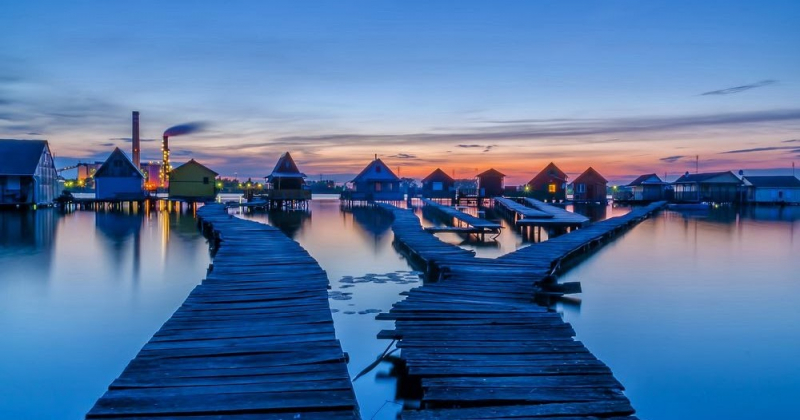
Photo: amusingplanet.com 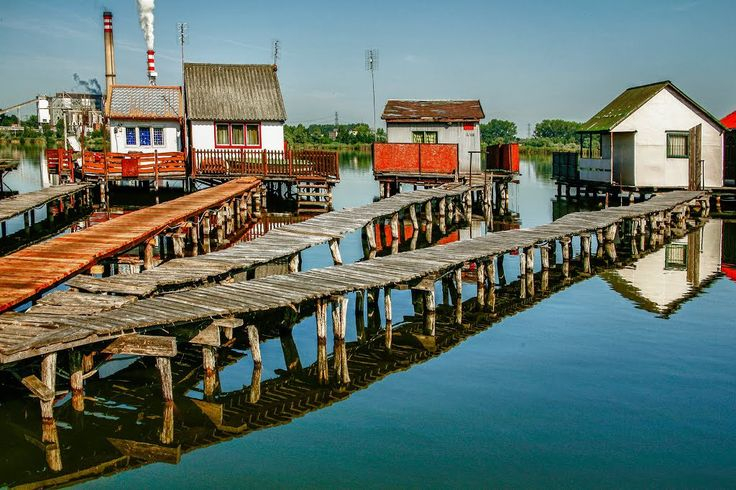
Photo: pinterest.com -
The County of Borsod-Abaj-Zemplén contains the Tarn of Megyer-hegy. It can only be reached by hiking a trail, definitely on foot, as tall cliffs conceal it on all sides. This lake's remote location adds to its beauty and elevates it to the status of one of Hungary's most intriguing tourist destinations. In addition to the stunning views, it is renowned as one of the most well-liked hiking trails in the area. If you wish to be seduced by the picturesque views, go to this lake!
It would be worthwhile to make a little detour to the tarn atop Megyer-hegy, the hill rising above the old settlement of Sárospatak, lovingly known as "Athens on the shores of the Bodrog," when you are touring the Tokaj-Hegyalja World Heritage Sites. The strenuous climb uphill is definitely worth it since the rock cauldron that emerges from the trees will leave you in awe. The site is a testament to the combined power of natural forces and human hands because it is both beautiful and terrifying.
Location: Sárospatak, 3950 Hungary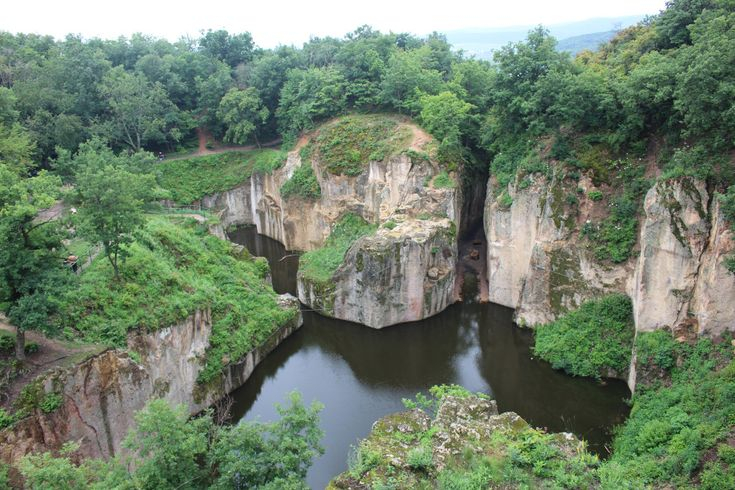
Photo: br.pinterest.com Video: https://www.youtube.com/watch?v=yi7pVDABWy4 -
Lake Tisza is also known as the Kisköre Reservoir because it is technically a reservoir. It is actually quite huge, covering an area of more than 127 square kilometers. It is located on the county's southern border, in Heves. The Tisza Dam was constructed in 1973, but it wasn't filled in until the 1990s, giving rise to Tisza Lake, which is now a well-liked tourist destination in Hungary. This lake has a maximum depth of about 17 meters, making it relatively deep. After this reservoir was finished, the Hungarian government designated it as an official tourist site. Consider spending time at Lake Tisza if you're looking for an alternative to Lake Balaton that isn't as busy or pricey.
After the reservoir was finished, Hungarians flocked to the area for the holidays since it was less congested and costlier than the country's traditional vacation spot, Lake Balaton. The reservoir was renamed Lake Tisza as a result, and tourist infrastructure was built there. The government also recognized it as an official tourist attraction.
The lake's (or reservoir's) environment is ideal, supporting a wide variety of birds, plants, and animals. Since 1999, the Hortobágy National Park has been recognized by UNESCO as a World Heritage Site. Lake Tisza is one of the best lakes to visit in Hungary.Location: Heves County, Hungary
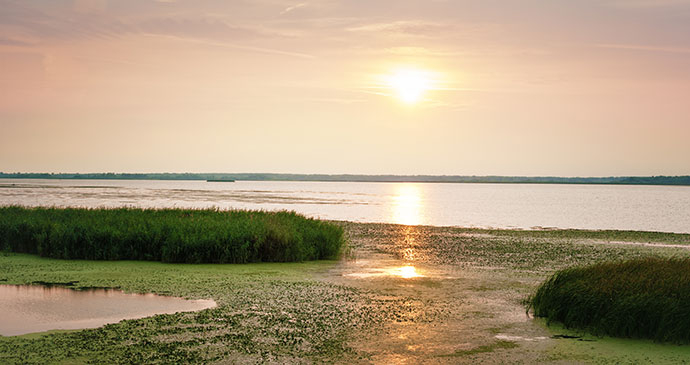
Photo: bradtguides.com 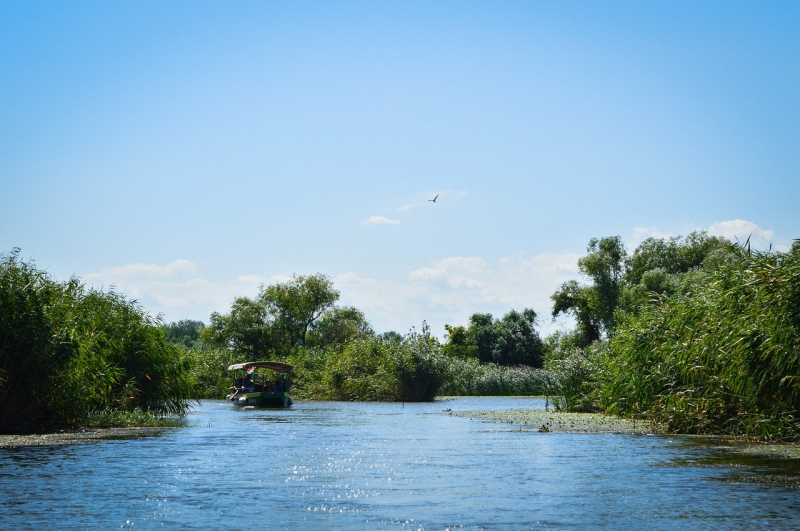
Photo: govisity.com -
The third largest natural lake in Hungary is Lake Velence, an endorheic basin. It is a well-liked vacation spot for Hungarians. The common reed covers one-third of the lake's 26 km2 surface area. It is one of the warmest lakes in Europe because of the area's sunny environment and the lake's shallowness; its summertime temperature can reach 26 to 28 °C.
Its name comes from where it is, which is in Fejér County, halfway between Budapest and Székesfehérvár, at the foot of the Velence mountains. Reed covers over 33% of the area, luring numerous rare bird species that seek refuge in European nature reserves. One of the warmest lakes in Hungary due to the warm, sunny climate and shallow 1.6 m waters. Additionally, it is thought that the sodium and magnesium in the water of Velence lake have regenerative properties and can soothe a tired body. You absolutely must go to this location while you are in Hungary, where it is also referred to as Balaton Lake's sister!
Location: Velence, Hungary
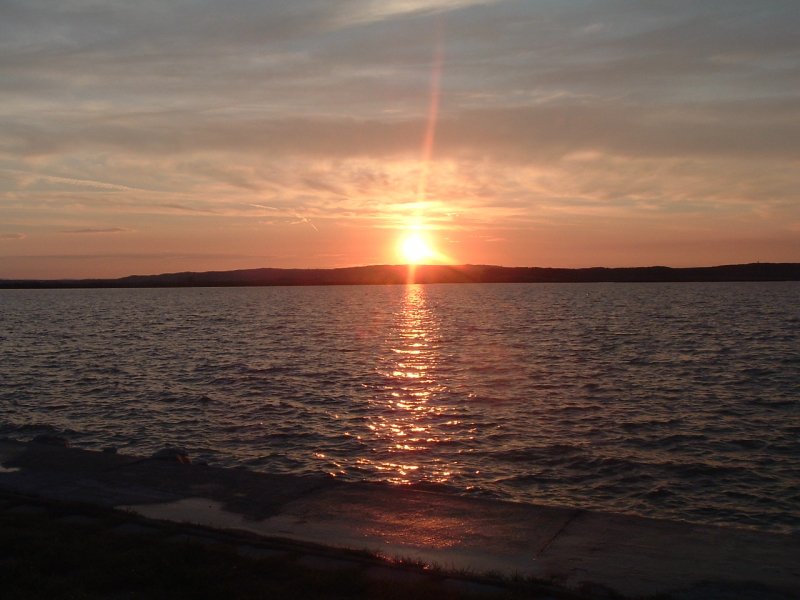
Photo: wikipedia 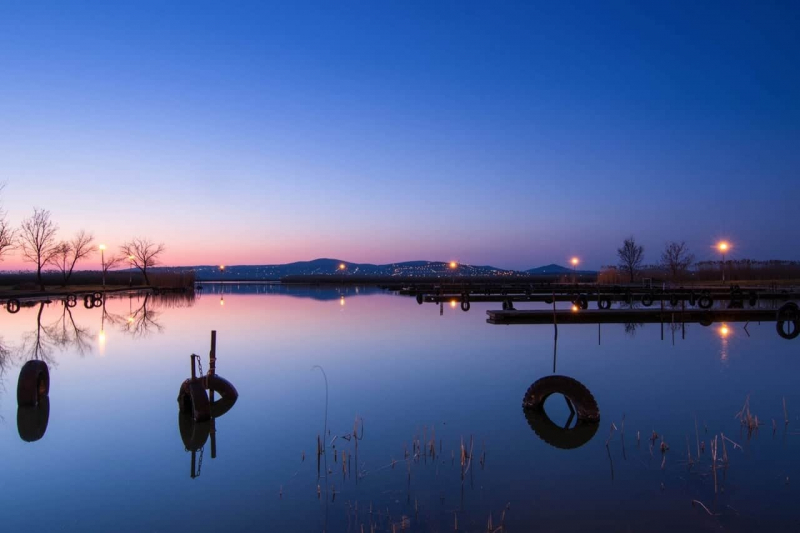
Photo: info-budapest.com -
Lake Fehér is one of the best lakes to visit in Hungary. Because it is white, it is given the name Fehér (White). It is located just to the north of the town of Szeged and is a component of the Kiskunság National Park. It has a 14 square kilometer area. Hungary's largest saltwater lake is called Lake Fehér. Due to its historical vegetation and 280 different bird species, it is strictly protected. The region is a crucial resting and feeding location for European birds during their migration. On Lake Fehér, large flocks of cranes, wild geese, and teal species can be seen during the migratory season.
In the year 1075, the lake was first referenced in writing. Up until the early 19th century, the Tisza River frequently inundated the region. The lake was formerly one of the Great Hungarian Plain's typical brackish lakes. These salty, shallow lakes have cloudy water caused by colloidal lime salts and a buildup of greyish-white carbonic lime silt on the lake bed. The salt "blossoms" on the lakebed when the lakebed dries out, as it occasionally does to some extent.
Location: Kiskunság National Park, Hungary
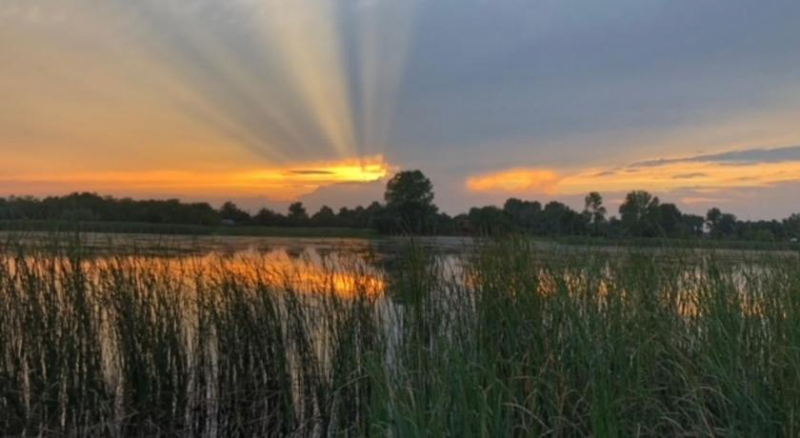
Photo: romania-stay.com 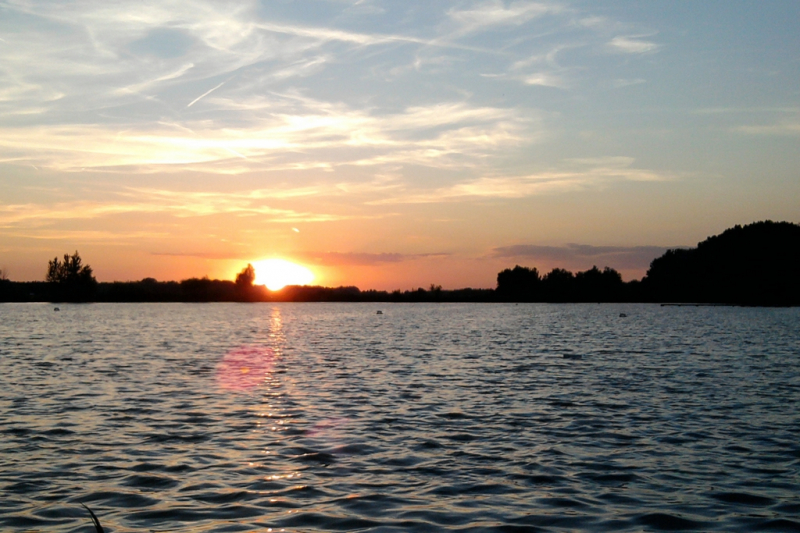
Photo: wikimedia commons










